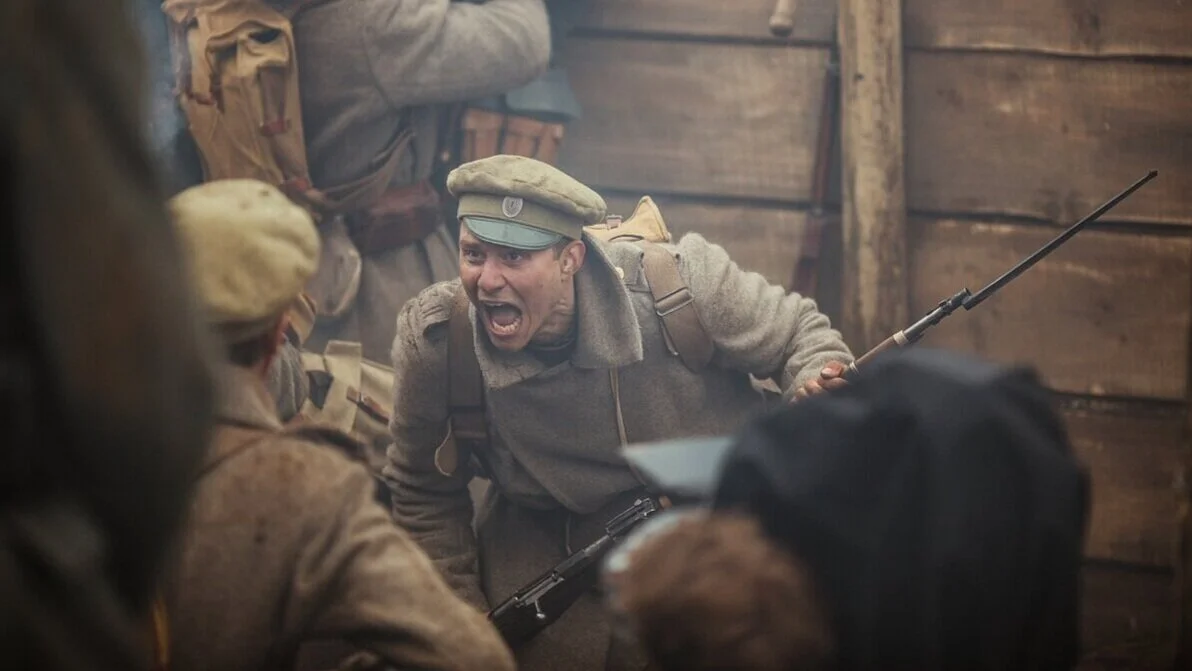The Rifleman
Largely familiar war themes are presented in an unfamiliar setting.
It is rare for a feature film from Latvia to be released in Britain but The Rifleman, a take on that country's experiences during the First World War, was a box-office smash hit on home ground and its impact there aroused interest internationally. There's no doubt that, as directed by Dzintars Dreibergs, this is a very efficient piece of work and it has the extra interest of being based on a novel, Blizzard of Souls, which appearing in 1934 was an essentially autobiographical work by Aleksandrs Grins and one that was for long thereafter banned in the Soviet Union.
That ban was clearly related to late developments in the narrative when, after Latvians had long participated in the war against Germany serving within the Russian army, the Russians changed tack. They withdrew from the war under a treaty set up with the Germans by the new Bolshevik government and this at huge cost to the Baltic states left under the domination of Germany. The sufferings of the Latvians, their numbers greatly reduced, would lead the country into a war for independence. These aspects emerge only late in the film but it is understandable that a modern-day Latvian audience should embrace a work like The Rifleman which pays tribute to the endurance of the people and ultimately celebrates an important turning point in that country's history.
That said, however, well-presented though it is, the greater part of The Rifleman offers very familiar material and the timing of its arrival here is, perhaps, unfortunate. The film is presented as the story of Arturs Vanags (the able Oto Brantevics) who, after his mother has been killed by the Germans, joins up to fight them along with his older brother, Edgars (Raimonds Celms), and his father (Martins Vilsons). The latter is accepted despite his age because of his fine military record and he persuades the authorities to sign up Arturs too even though being only sixteen he is strictly under age.
What befalls these three as soldiers certainly does not glamorise war even if the narrative is told with national pride well to the fore (an early line sets the tone: "Get up! On your feet! You're Latvians!"). But, in being asked to follow the experiences of these three and of other youngsters joining up, we find that, Arturs apart, there is little time to develop them as detailed individuals whose fate becomes deeply meaningful to us. This weakness is all the more apparent if one compares this film with the recent 1917 which by concentrating on just two individual soldiers made us feel for them every step of the way. Furthermore, the direction of The Rifleman in spite of being very adept lacks the imaginative reach shown by Sam Mendes in 1917.
This Latvian work adds an extra thread by just about sketching in a romance between Arturs and a nurse (Greta Trusina) who rather conveniently turns up from time to time (Trusina is rather good in the role but this element can't help but feel like a fictional cliché that has been incorporated). Nevertheless, The Rifleman is a well-made film and any young viewers of any nationality who are new to the subject-matter might be very impressed by it. For other audiences, however, and not least for those who have already seen 1917, it is a less confident recommendation, albeit not a film that should be dismissed.
Original title: Dveselu Putenis.
MANSEL STIMPSON
Cast: Oto Brantevics, Raimonds Celms, Martins Vilsons, Greta Trusina, Jekabs Reinis, Gatis Gaga, Renars Zeltins, Natãlija Buha, Evita Goze, Vilis Daudzins, Ieva Florence, Rezija Kalnina.
Dir Dzintars Dreibergs, Pro Dzintars Dreibergs and Inga Pranevska, Screenplay Boris Frumin, from the novel Blizzard of Souls by Aleksandrs Grins, Ph Valdis Celmins, Pro Des Juris Žukovskis, Ed Gatis Belogrudovs, Music Lolita Ritmanis, Costumes Sandra Sila.
Kultfilma/EYEWELL/National Film Centre of Latvia/DEPO-Parkland Entertainment.
108 mins. Latvia. 2019. Rel: 10 August 2020. Available on VOD. Cert. 15.


